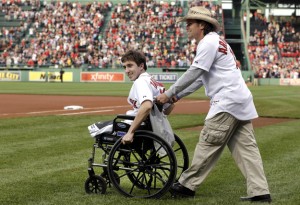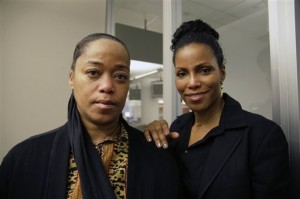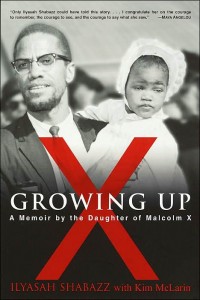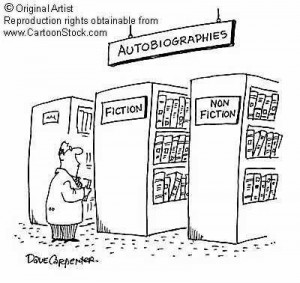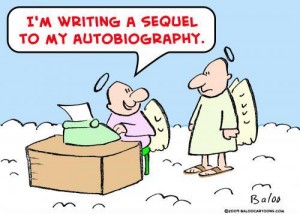Approaches to Life Writing, Fall 2013
September 29, 2013
A Critical Essay on A Life of Reinvention: Malcolm X
by Enito Mock

Good Afternoon Everyone! I hope you all are enjoying your wonderful weekend! I found this interesting study on Marable’s Book “A Life of Reinvention: Malcolm X” conducted by John Andrew Marrow PhD from the University of Virginia using a database at the library. He discusses the false claims that were placed on Malcolm X involving his sexuality, promiscuity, and lifestyle. Enjoy!!
Morrows Critical Review Manning
If you can’t get the essay through the link, go to GC library page –> Databases –> Literature Resource Center –> A Life of Reinvention Malcolm X
Marrow, A. (2012). The second assassination of Malcolm X: A critical review of manning marable’s biography. Journal of Pan African Studies, 5(1), 207-227
You can also find other book reviews and critical essays on this database as well!
Happy Explorations!
September 26, 2013
Malcolm Uninterrupted
by Ilya Benjamin
1964 Diary of Malcolm X Released.
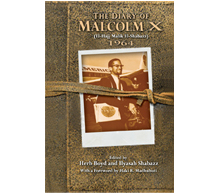
Next month’s release of Diary of Malcolm X, promises “Malcolm un-interrupted.” Public release of the private journal is supported by the family. Haki Madhubuti founder and publisher of Third World Press, writes in a personal fundraising note, “We are very grateful that Malcolm’s children have granted us the opportunity to publish The Diary; It is the most important volume we have ever brought to the public, after more than 46 years in publishing.”
Previously unedited, unpublished manuscript produced in 1964 chronicles represent the time in Malcolm’s life when he traveled the continent of Africa. Prominent intellectual Louis Gates Jr. writes, “The publication of The Diary of Malcolm X is a great historical event in African American intellectual history. Reading these entries has the effect of overhearing a profound thinker’s most private and uncensored thoughts about everything from his split with Elijah Muhammad to the cost of 16mm film in Accra” (). This Third World Press publication, Diary of Malcolm X, was edited and annotated by author and journalist Herb Boyd in collaboration with Malcolm’s and Betty’s daughter, Ilyasah Al-Shabazz. What is also quite impressive about this release is how hands on the daughters have been with its publication. Not only did third eldest Daughter, Ilyasah Al-Shabazz collaborate and contribute editorially to this project but has also worked to market and fundraise. Under “perks” note that a $1000 USD contribution to the publication will get you a dinner with the author of Growing Up X: A Memoir by the Daughter of Malcolm X, in New York City, in addition to the signed clothbound copy of the diary, of course. [1]
“It’s good we get to see Malcolm in his own voice, without scholars or historians, observers, saying what he was thinking or what he was doing or what he meant…” third eldest daughter Ilyasah Al-Shabazz explains on book’s crowd funding website Indiegogo. http://www.indiegogo.com/projects/the-diary-of-malcolm-x–3
Third World Press’s timely release comes just two years after the Manny Marable’s controversial “reinvention” portrayed Malcolm as a bisexual whose “real” killer escaped justice [2]. Marable’s somewhat contentious appraisal of Malcolm personal life seemed to drastically contradict the integrous image of the man who, Ozzie Davis ardently eulogized as “… our manhood, our living, black manhood!” Needless to say, the fact that Marable’s portrayal made many people , especially the daughters ”unhappy” is an understatement [3]. During a 2011 NPR interview, Ilyasah Al-Shabazz called the book “distasteful” and says Marable never explicitly contacted the family to contribute to the biography that was 20 years in the making. Where does famed author/biographer Manny Marable stand on this controversy? Most certainly in the grave where secrets are best kept; where unless written down, his 1st hand knowledge of his own internal motivations will remain buried under lock and key. Marable’s death just days before the biography’s publication ultimately ensures his thoughts on the matter remain a mystery until the day he will undoubtedly become the subject of biography himself. Until then, Third World Press is expected to release the 1964 Diary of Malcolm X, this November; Now we will be able to read Malcolm in his own words.[4]
Additional Resource:
Malcolm X’s Daughter Disputes Claims in New Bio on Father
CLASS CONNECTION:
“Words assume a reader or a listener, in other words, someone at the receiving end, who often may be non other than the rememberer herself” (Ender 77).
We write with the intention of being read. Reading “A Sketch of the Past,” raised ethical concerns over posthumously published works, especially when an author explicitly requests sequester of un- publishable materials, to whom is the final say given over personal legacy?
This week we are scheduled to read the famed Autobiography of Malcolm X as told to Alex Haley, a posthumously published biography, that I learned in a 2011 NPR interview with the 3rd eldest daughter Ilyasah, lost four chapters during the editing process. Manny Marable’s controversial biography published days after his own death is also on the syllabus. Malcolm’s daughters have questioned the evidence and lack of evidence in the Marable’s biography. Ilyasah, author of her own memoir, Growing Up X: A Memoir by the Daughter of Malcolm X, in New York City, raised suspicions during the interview that the immediate family had not even been consulted for the work that took Marable 20 years to complete.
Families of the subjects of many posthumously published works, have often argued that their authority on truth comes by virtue of proximity to the life lived; they alone can establish the truth value represented in biography. Malcolm’s daughters in conjunction with Third World Press, are releasing the Diary to the public. You decide. Read Malcolm in his own words.
[1] http://www.indiegogo.com/projects/the-diary-of-malcolm-x–3
[2]Read more: http://www.dailymail.co.uk/news/article-1373652/Malcolm-X-bisexual-killer-escaped-justice-claims-new-book.html#ixzz2funcPGN5
[3] http://www.huffingtonpost.com/2011/04/07/malcolm-xs-daughters-unhappy_n_845943.html [4]http://www.npr.org/2011/04/20/135570322/malcolm-xs-daughter-addresses-controversial-claims-in-new-bio-on-father
September 19, 2013
Some questions on Marcus and Strachey
by Alessandro Mitrotti
1. If we follow the line of thinking that “biography is means of expression when the author has chosen his subject in order to respond to a secret need in his own nature (Andre Maurois as quoted in Marcus pg. 102), then what could we opine were Strachey’s “secret needs” in choosing the noble yet dry Eminent Victorians?
2.What is the significance of Strachey including four separate biographies in one volume? In contrast to biographies with a single subject, the focus is shifts to style, stance and the one constant throughout the book, Strachey…
3.What were Strachey’s contemporary critics views on Eminent Victorians? Did they take offense at his omissions and mocking style?
4. How were the dichotomies that Marcus states are central to the body of biographical discourse: inner/outer, subject/object, mind/body, public/private, fact/fiction (pg. 130) manifest in Eminent Victorians? **I think the line between subject and object is blurred for example because of the agenda Strachey brings to his work. (his anger, his sarcastic wit and his anti-Victorian stance….)
5.”New biography” was a reaction to Victorian biographical panegyric, hero-worship” (Marcus 96)
Is this type of reaction to, or rejection of a past style inherent to any literary or movement?**This is significant I think because it sets up a context….
September 18, 2013
Eminent Victorians in The Guardian
by Carrie Hintz
The Guardian had a nice article about Eminent Victorians:
http://www.theguardian.com/books/2002/jul/20/featuresreviews.guardianreview22
September 18, 2013
Section from Apologia pro vita sua
by Carrie Hintz
The text of Lytton Strachey’s Eminent Victorians is available as a free e-book on the web.
Here is the small snippet from Apologia pro vita sua I want you to read; no need to read the whole book. In this section he is converting from Anglicanism to Catholicism and therefore resigning from Oxford, which had been his home for a long time. I’m having you read this because Strachey refers to the snapdragons etc. in passing, in a way that I think is very interesting from a technical standpoint–we can discuss that in class.
Here is Newman:
One of my friends at Littlemore had been received into the Church on Michaelmas Day, at the Passionist House, at Aston, near Stone, by Father Dominic, the Superior. At the beginning of October the latter was passing through London to Belgium, and, as I was in some perplexity what steps to take for being received myself, I assented to the proposition made to me, that the good priest should take Littlemore in his way, with a view to his doing for me the same charitable service as he had done to my friend.
On October the 8th I wrote to a number of friends the following letter:—
“Littlemore, October 8th, 1845. I am this night expecting Father Dominic, the Passionist, who, from his youth, has been led to have distinct and direct thoughts, first of the countries of the North, then of England. After thirty years’ (almost) waiting, he was, without his own act, sent here. But he has had little to do with conversions. I saw him here for a few minutes on St. John Baptist’s day last year.
“He is a simple, holy man; and withal gifted with remarkable powers. He does not know of my intention; but I mean to ask of him admission into the one Fold of Christ … ”
For a while after my reception, I proposed to betake myself to some secular calling … [But] soon, Dr. Wiseman, in whose Vicariate Oxford lay, called me to Oscott; and I went there with others; afterwards he sent me to Rome, and finally placed me in Birmingham … I left Oxford for good on Monday, February 23, 1846. On the Saturday and Sunday before I was in my House at Littlemore, simply by myself, as I had been for the first day or two when I had originally taken possession of it. I slept on Sunday night at my dear friend’s, Mr. Johnson’s, at the Observatory. Various friends came to see the last of me; Mr. Copeland, Mr. Church, Mr. Buckle, Mr. Pattison, and Mr. Lewis. Dr. Pusey, too, came up to take leave of me; and I called on Dr. Ogle, one of my very oldest friends, for he was my private Tutor, when I was an Undergraduate. In him I took leave of my first College, Trinity, which was so dear to me, and which held on its foundation so many who had been kind to me, both when I was a boy, and all through my Oxford life. Trinity had never been unkind to me. There used to be much snapdragon growing on the walls opposite my freshman’s rooms there, and I had for years taken it as the emblem of my own perpetual residence even unto death in my University. On the morning of the 23rd I left the Observatory. I have never seen Oxford since, excepting its spires, as they are seen from the railway.
John Henry Newman, Apologia Pro Vita Sua
September 12, 2013
de Man–and Dragons
by Carrie Hintz
Dear Ilya,
I appreciated your searching post on de Man–and the questions you posed.
And I would like to share a blog post that I think echoes some of your questions and builds on them.
It’s a great article for everyone to read:
The Fiction in Autobiography: Fantasy, Narrative and the Discovery of Truth
September 11, 2013
Sorry to Say: It’s Not You, It’s ME…
by Ilya Benjamin
Pulitzer poet Lisel Mueller answers De-Man’s rhetorical question, “can autobiography be written in verse?” with a resounding, Yes! April 1997, the same year she was awarded the prize, Lisel told the Chicago Tribune that, “Everything is autobiography, even if one writes something that is totally objective. The fact that it’s the subject that seizes you makes it autobiographical.”
Born in February of 1924 in Hamburg, Lisel immigrated to America at the age of 15. She was awarded the Pulitzer Prize for Alive Together, a collection of poems representing 35 years of her work. The poem “Immortality” featured in the collection, plays with the blurred lines between the autobiographical and fiction. Her style and command of language and use of the sleeping beauty metaphor drawn from canonical fairy tale show incredible balance and dexterity on the thin wire tightrope where biography and fiction converge.
http://www.loc.gov/poetry/180/173.html
Additional Resources:
PBS Interview with Lisel Mueller.
http://www.pbs.org/newshour/bb/entertainment/jan-june97/mueller_4-14.html
Preston, Rohan B. “Everything Is Autobiography.” Chicago Tribune: Lifestyles. April 11, 1997. http://articles.chicagotribune.com/1997-04-11/features/9704110298_1_gwendolyn-brooks-pulitzer-prize-poetry-center September 06, 2013. http://shar.es/igBFy
September 11, 2013
Discussing De-Facement: Discussing De-Man
by Ilya Benjamin
Autobiography TOO BIG for GENRE Britches?!
 De-Man who is similar to Derrida in all but style, seems bored with the “predictable monotony” regarding critical approaches to reading/interpreting autobiography. It makes no sense to lump autobiography into the literature category if it can’t be interpreted creatively because of its over-pronounced proximity to truth, he argues. It is also disingenuous to read/interpret it as fact when it typically presents only the most flattering of “self-portraiture,” an assemblage of half-trues strung together with questionable intent. Tongue and cheek, De-man states for the matter, “any book with a readable title page is, to some extent autobiographical” (922). De-Man’s own critical essay could be read as autobiographical as the title obviously reflects his own proper name in the title itself; an article on “De-facement by De-Man(920).
De-Man who is similar to Derrida in all but style, seems bored with the “predictable monotony” regarding critical approaches to reading/interpreting autobiography. It makes no sense to lump autobiography into the literature category if it can’t be interpreted creatively because of its over-pronounced proximity to truth, he argues. It is also disingenuous to read/interpret it as fact when it typically presents only the most flattering of “self-portraiture,” an assemblage of half-trues strung together with questionable intent. Tongue and cheek, De-man states for the matter, “any book with a readable title page is, to some extent autobiographical” (922). De-Man’s own critical essay could be read as autobiographical as the title obviously reflects his own proper name in the title itself; an article on “De-facement by De-Man(920).
Since we can’t say what autobiography is, let’s explore what it is not. It is not a literary genre among other literary genres. Genre presumes an aesthetic criterion. Ultimately one could argue special skill or creative talent is required to write lyric or say a novel. How does someone evaluate the skill or novelty of, “mere reportage, chronicle, or memoir” of one’s own life? (919). Personal chronicles or “autobiography” elevated to even moderate positions within the canonical hierarchy, according to De-Man and I agree, “always look slightly disreputable and self-indulgent” comparably speaking (922). Autobiography cannot be entirely fiction. It insists upon itself too much. It’s not exactly history. It’s typically too flattering and void of context. In a way, outside of the form’s generic insistence on its proximity to truth there’s very little to go on. De-Man attributes this feature to a so-called, “incompatibility with the monumental dignity of aesthetic values” (919).
WHO ARE YOU AND HOW DO WE READ FOR TRUTH?!
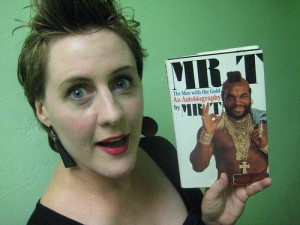 How do we know we are reading autobiography? Can autobiography be written in verse?” for example, he asks rhetorically. Better to say that autobiography is a type of reading activated by certain “tropes” such as birth, life, and death or the use of a verifiable proper name. How or what these tropes activate remains a mystery. Rarely is the reader in a position or so inclined to fact check the details of Autobiography unless s/he is so motivated to authenticate. Autobiography it appears must be served up that way. Techniques the author employs for example the use of proper names, and “tropes” like birth, life and death aid facilitate the perception of “alignment.” We must also consider the fact that some of these distinctions occur naturally within other more assertive forms of fiction. Realism in the novel for example is critiqued by its proximity to “life” while Sci-fi is reserved for more fantastical fictional renderings. Realist fiction like some of the works of de Balzac for example relied heavily on “real” locations and proper names. I visited the famous Pere Lachaise cemetery in Paris, the final resting pace of Black author Richard Wright and musician Jim Morrison only having learned about it from reading Balzac’s realist novel Pere Goriot. No matter how realist, Pere Goriot is most certainly classified as bonafide fiction. I will carry my digression a bit further and ask, what are we to make of science fiction (sci-fi) for that matter? The pendulum certainly swings in the direction of the fantastical side? Yet, more and more, especially in the 21st century, I have been privilege to witness an era of sci-fi come true. De-Man’s tongue and cheek comment that, “any book with a readable title page is, to some extent autobiographical, is perhaps not so tongue and cheek (922).
How do we know we are reading autobiography? Can autobiography be written in verse?” for example, he asks rhetorically. Better to say that autobiography is a type of reading activated by certain “tropes” such as birth, life, and death or the use of a verifiable proper name. How or what these tropes activate remains a mystery. Rarely is the reader in a position or so inclined to fact check the details of Autobiography unless s/he is so motivated to authenticate. Autobiography it appears must be served up that way. Techniques the author employs for example the use of proper names, and “tropes” like birth, life and death aid facilitate the perception of “alignment.” We must also consider the fact that some of these distinctions occur naturally within other more assertive forms of fiction. Realism in the novel for example is critiqued by its proximity to “life” while Sci-fi is reserved for more fantastical fictional renderings. Realist fiction like some of the works of de Balzac for example relied heavily on “real” locations and proper names. I visited the famous Pere Lachaise cemetery in Paris, the final resting pace of Black author Richard Wright and musician Jim Morrison only having learned about it from reading Balzac’s realist novel Pere Goriot. No matter how realist, Pere Goriot is most certainly classified as bonafide fiction. I will carry my digression a bit further and ask, what are we to make of science fiction (sci-fi) for that matter? The pendulum certainly swings in the direction of the fantastical side? Yet, more and more, especially in the 21st century, I have been privilege to witness an era of sci-fi come true. De-Man’s tongue and cheek comment that, “any book with a readable title page is, to some extent autobiographical, is perhaps not so tongue and cheek (922).
WHAT’S REALLY AT STAKE: WHO’S AFRAID OF A REVOLVING DOOR?!
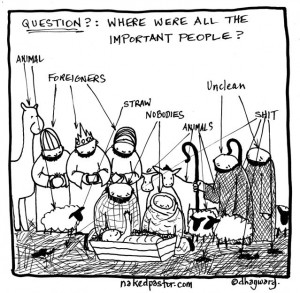 De-man says what’s at stake is, “not only the distance that shelters the author of autobiography from his experience, a so-called buffer that protects the fiction writer, “but the possible convergence of aesthetics and of history” (919). I ask, who has the final say? When the dividing line between Fact and fiction is blurred, what’s Really At STAKE? Coincidentally, the desire to demarcate autobiography as a “genre” emerges at a time when science and rational thinkers begin to hardline the differences between fact and fiction. This occurs for a variety of reasons I am sure, one of which was to legitimize “scientific knowledge” and its corresponding methods of inquiry. Another innovation coincidentally that developed involved legal other reasons were wrapped in legal implications and other “rational endeavors.” The difference between fact and fiction is a tight rope rather than a “revolving door” (921). If a certain reality and other “fact” based endeavors are to be legitimized, meaning must be stabilized. Productivity and “progress” depends on these unsorted definitions.
De-man says what’s at stake is, “not only the distance that shelters the author of autobiography from his experience, a so-called buffer that protects the fiction writer, “but the possible convergence of aesthetics and of history” (919). I ask, who has the final say? When the dividing line between Fact and fiction is blurred, what’s Really At STAKE? Coincidentally, the desire to demarcate autobiography as a “genre” emerges at a time when science and rational thinkers begin to hardline the differences between fact and fiction. This occurs for a variety of reasons I am sure, one of which was to legitimize “scientific knowledge” and its corresponding methods of inquiry. Another innovation coincidentally that developed involved legal other reasons were wrapped in legal implications and other “rational endeavors.” The difference between fact and fiction is a tight rope rather than a “revolving door” (921). If a certain reality and other “fact” based endeavors are to be legitimized, meaning must be stabilized. Productivity and “progress” depends on these unsorted definitions.
Perhaps ultimately, the market has the final say about whose biographies we are willing to read, if scholars are unable to uphold a standard. Autobiography has the potential for vast inclusivity might be enough to make many a cultural elitist or purist cringe at the very idea of such mass participation, thereby potentially diluting the form and diminishing its canonical prestige. Being caught in a revolving door is indeed frightening, but it is only the tip of the iceberg.
Articles on Sci-Fi come true:
http://mashable.com/2010/09/25/11-astounding-predictions/
http://news.discovery.com/tech/biotechnology/2012-science-fiction-became-fact-121226.htm
http://www.huffingtonpost.com/2012/07/20/science-fiction-predictions-true_n_1689476.html
DISCUSSION QUESTIONS
Q1: Question# 1. Outside of an “alignment” between a proper name, autobiographical subject and the authorial claim to self-knowledge, does Autobiography possess any Aesthetic?
Q2: Outside of the author, publisher or editor circumscribing the text as autobiographical, what tropes activate an autobiographical reading? How is this reading triggered in less obvious forms like poetry, art or criticism?
Q4: If autobiography is not a literary genre, could it be read as historical? What’s at stake reading autobiography under the broader canopy of history?
Q5: Who knows me better than me? Why doesn’t autobiography constitute self-knowledge?
September 11, 2013
A NPR Story of potential interest
by Carrie Hintz
Some of you are having technical difficulties getting set up on the blog. Do not worry; I can help you when we meet tomorrow–either in class or during my office hours.
Melanie Locay has sent the following link to an NPR story of potential interest to all:
For Biographers, The Past Is An Open (Electronic) Book http://www.npr.org/blogs/alltechconsidered/2013/09/04/216144853/for-biographers-the-past-is-an-open-electronic-book
